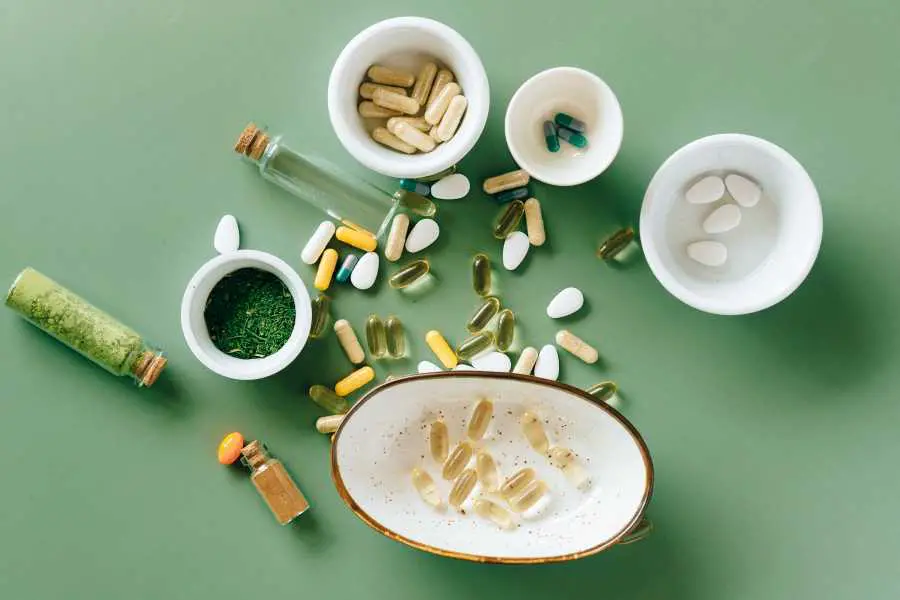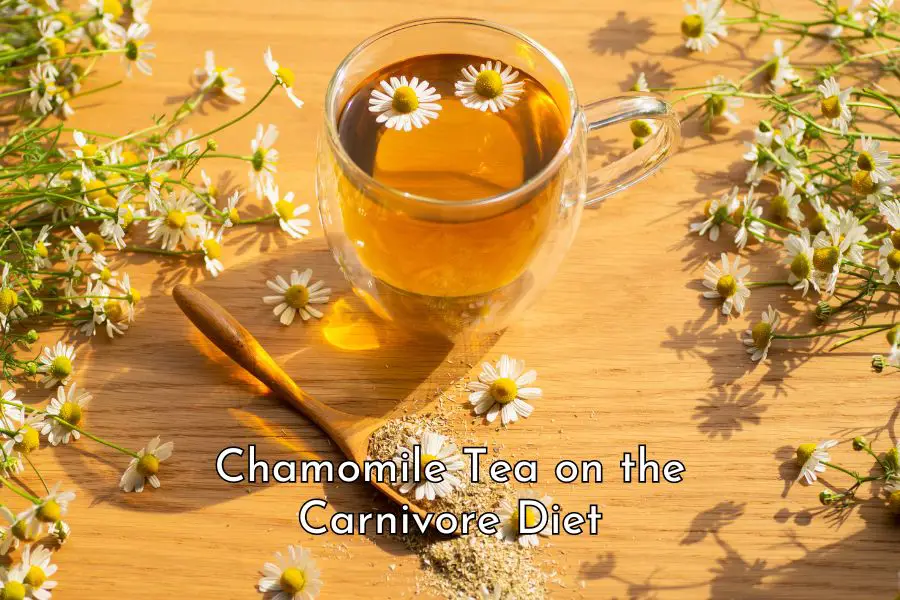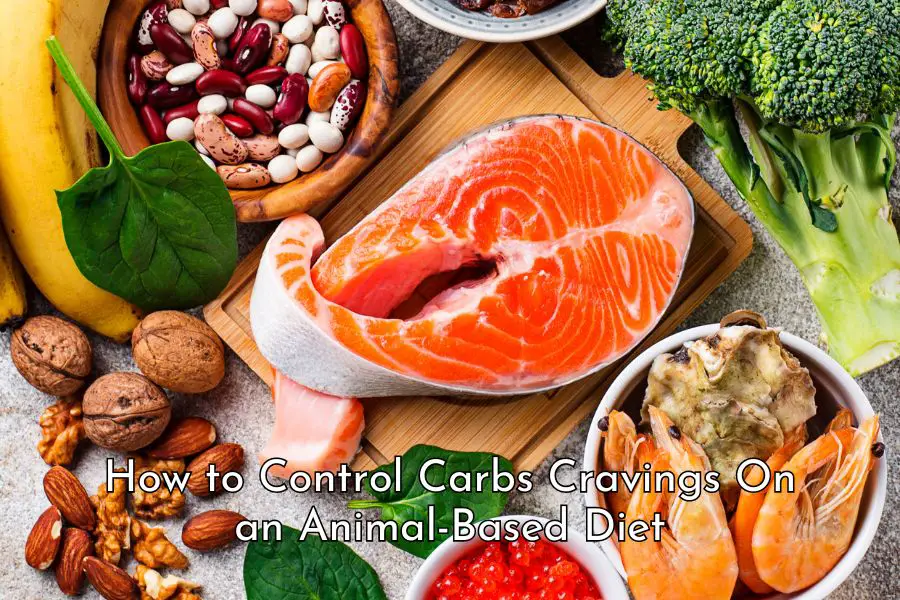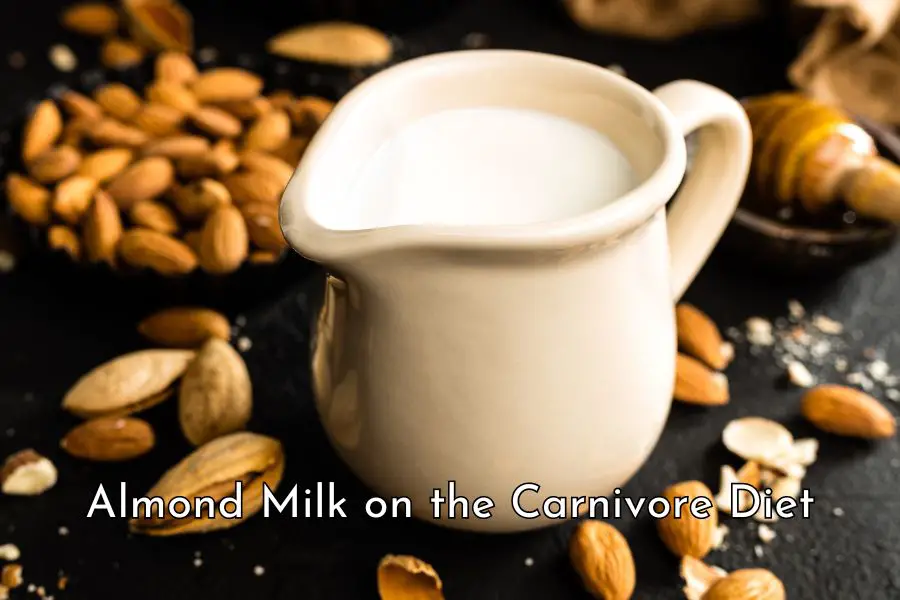This website is reader-supported meaning when you make purchases through our links, at no additional cost to you (and sometimes with significant savings), we may earn a commission. Thank you very much for your support!
People who are new to the carnivore diet are often concerned that they don’t get all the nutrients that their body needs from eating only meat and hence look for supplements to avoid nutrient deficiencies.
For example, Joe Rogan reportedly took a bunch of vitamin, mineral and fish oil supplements during his one-month carnivore experiment in 2020.
Concerns of nutrient deficiency on the carnivore diet are understandable because most of us have been indoctrinated with the idea that fruits and vegetables are the best sources of all essential vitamins and minerals, not animal-based food.
This cannot be further from the truth: meat and other animal-based food can provide you with all nutrients that your body ever needs. They are also the most nutrient-dense and bioavailable food that you can eat.
Supplements are not necessary on the carnivore diet if you truly eat nose to tail, eat a variety of food and eat a mixture of cooked and lightly cooked food.
If you have been on the carnivore diet for a while and there are some health issues that remain unresolved, it’s a good idea to have a look at what you’ve been eating and other aspects of your lifestyle rather than immediately blaming the diet and looking at supplementing.
Only in cases where you cannot eat this way due to difficulty in getting access to organ meat, for example, or due to personal preferences, then you may need to look at supplementing.
The remainder of the post will look at why supplements on the carnivore diet are generally unnecessary and address common concerns about nutrient deficiencies on this diet. It then covers special cases where supplements are justified and the best supplements to get.
Why supplements on the carnivore diet are generally unnecessary
You can get all the necessary nutrients for your body’s needs from animal-based food
In my view, the carnivore diet can provide you with all nutrients that your body needs if you make ruminant meat, fat and organ meat the staple of your diet.
The table below shows the nutritional contents of ground beef, beef fat, and a few organ meats.
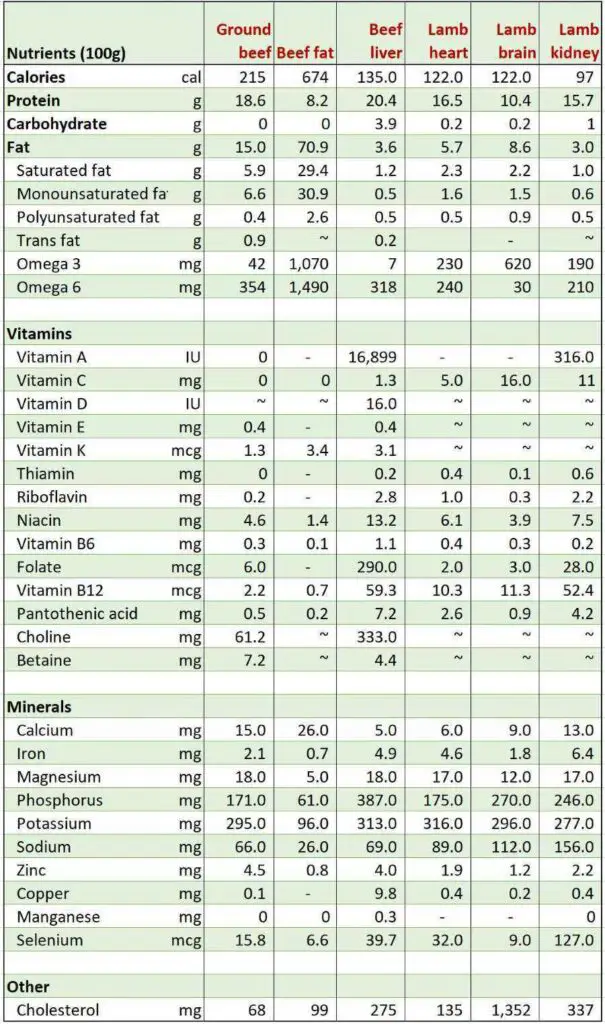
As you can see, even if you just eat budget meat like ground beef, fat trimmings and a few servings of organ meat a week, you can get all the essential nutrients for your body’s needs including complete proteins, good fats, omega 3 fatty acid, vitamin A, vitamin C, vitamin D, vitamin K, folate, choline, betaine as well as a wide range of minerals.
In addition, if you make bone broth regularly, you will get a great source of gelatin, proline, glycine and a variety of minerals. Bone broth has many health benefits including joint, bone, skin, and gut health. [1]
Supplements are generally not recommended even when treating chronic health conditions with this diet
The International Center for Medical Nutritional Intervention (ICMNI) has been using this exact simple diet without supplements to treat many chronic health conditions including diabetes, autoimmune diseases, cancer, and intestinal permeability.
In the ICMNI’s protocol, one of their first general therapeutic steps is to discontinue all dietary supplements and reconsider all existing medications.
They do not recommend taking any supplements and only in some rare cases, a one-off vitamin D supplement may be given.
To treat chronic health conditions, leaky gut and even cancer, they invariably put their patients on a strict version of the carnivore diet that includes red meat, animal fat, and organ meat with a fat-to-protein ratio of around 2:1 (in grams).
If you would like to read their published case reports, check out their website or read a short summary of those cases in this post.
Meeting the exact RDAs should not be the key focus
If you only eat meat and organ meat, you may exceed the RDAs for some nutrients while failing to meet the RDAs for some others.
This is not a cause for concern.
Remember that the RDAs set by health authorities are for the general population who are on a broad spectrum of diets from vegan and vegetarian to omnivore.
When grains, nuts, seeds, vegetable oils and ultra-processed foods make up a significant portion of your diet, you will need a higher intake of essential nutrients because the anti-nutrients present in plant food interfere with the proper absorption of those nutrients.
For example, spinach is calcium-rich but because it is also high in oxalates which bind with calcium, your body can absorb very little of the calcium in spinach (about 5% compared to around 30% for dairy products).[2, 3]
Similarly, vitamin K1 from plant sources is poorly absorbed by the human body while vitamin K2, although less abundant, is found to have an absorption rate multiple times higher than that of vitamin K1. [4, 5, 6]
If we eat what our ancestors ate for millions of years, if we eat what we are meant to eat, and if we eat according to our biological needs, we don’t need to count calories, we don’t need meal plans and we don’t need to meet recommended daily allowances to stay healthy.
Our ancestors ate mostly large herbivores and drove them to extinction. The closest you can get to large herbivores these days are ruminants like cows, elks, buffaloes, and bison. Ruminants like cows and sheep are also amongst the best-raised farmed animals these days. If possible, this should be made the staple of your carnivore diet.
If you enjoy and can tolerate other animal-based food like eggs, dairy, pork, poultry, and seafood, you can meet all your nutritional requirements a lot easier and will have no problem getting all nutrients for your body’s needs.
The section below addresses some nutritional deficiency concerns that make people look at supplementing when they are on the carnivore diet.
Common reasons for supplementing and why they are unjustified
1. Salt and electrolytes
You might have previously come across the advice that you should substantially increase your salt intake on the carnivore diet, especially during the transitional stage in order to compensate for the lost sodium as your body switches from burning sugar to burning fat for fuel.
However, as I previously wrote in this post, this doesn’t make a lot of sense to me.
If your diet is high in carbohydrates, your sodium need will increase. This is because once carbohydrates are broken down into sugar, absorptive cells in the small intestine need sodium in order to transport the sugar from your gut to the bloodstream.[7]
When you are on the carnivore diet, your carb intake is negligible, therefore, your salt or sodium requirement will go down, hence your body dumps sodium together with water during the transition phase.
Therefore, there is no reason to deliberately add more salt to your diet. Your body is an incredibly smart machine, it dumps sodium because it no longer needs a lot of sodium to deal with the influx of carb and glucose.
In addition, your body has the ability to self-regulate to maintain healthy blood sodium and chlorine levels through thirst and antidiuretic hormone release (unless your kidneys or senses are significantly impaired in some way). [8, 9]
Therefore, I don’t see any need to supplement with extra salt or electrolytes on the carnivore diet.
As can be seen from the above nutritional data, meat itself already contains all electrolytes including sodium, chloride, potassium, magnesium, phosphate and calcium in perfect proportion. No supplement can create this perfect natural electrolyte ratio.
With regard to salt, when you first start the carnivore diet, let your body be the guide and salt your meat to taste. Later on, you can conduct an experiment of going without salt to see if you actually need salt or feel better without it.
2. Betaine HCL
When you switch to the carnivore diet, your body needs time to get used to the sudden increase in protein intake and there are suggestions that you may need to take betaine HCl to increase your stomach’s acidity level to help with digestion.
While it sounds logical in theory, in my opinion, this is generally unnecessary.
Your body can adjust its gastric acid production according to the level of your protein intake. It may take time but it is a natural process and there is no reason to take a supplement when there is no evidence indicating that it actually works.
I have found a lot of advice on the internet recommending people to take betaine HCl when switching to the carnivore diet. However, I haven’t been able to find a single piece of quality scientific evidence showing that betaine HCl can help with digestion or provide other health benefits.
There are two small studies showing that betaine HCl increased stomach acid in healthy volunteers after it had been artificially lowered by antacid drugs. While this shows that betaine HCl may help with fixing problems caused by acid-lowering medications, this does not prove that taking betaine HCl can help you digest protein and absorb minerals better in healthy individuals. [10, 11]
Furthermore, the use of betaine hydrochloride in OTC products advertised as “stomach acidifiers” has been banned by the FDA since 1993 due to the lack of evidence for it to be recognized as “safe and effective”. [12, 13]
Betaine hydrochloride, glutamic acid hydrochloride, diluted hydrochloric acid, and pepsin have been present as ingredients in over-the-counter (OTC) drug products for use as stomach acidifiers.
Because of the lack of adequate data to establish the effectiveness of these or any other ingredients for use in treating achlorhydria and hypochlorhydria, and because such conditions are asymptomatic, any OTC drug product containing ingredients offered for use as a stomach acidifier cannot be considered generally recognized as safe and effective.
Code of Federal Regulations Title 21
Betaine HCl is now only available as a dietary supplement that is often advertised as “comprehensive enzyme formulas designed to help maintain normal, healthy digestive function” but comes with the disclaimer that “this statement has not been evaluated by the Food and Drug Administration. These products are not intended to diagnose, treat, cure or prevent any disease“.[14]
If you would like to help your body increase its stomach acid production naturally, try the following:[15, 16, 17]
- At mealtime, sit down, be present, focus on your food, and chew slowly. The production of your stomach acid begins upon you seeing, smelling and chewing food
- Eat nutrient-dense food and provide your body with an abundance of essential nutrients like B vitamins, magnesium and zinc which it needs to produce stomach acid
- Find ways to reduce stress. When you are stressed, your body is in fight-or-flight mode, survival is prioritized and energy is diverted to the bloodstream, brain, and skeletal muscles for the body’s immediate use for optimal survival. Less critical activities such as eating, growing, and sexual activity are not prioritized. If you relax during mealtime, your body can focus better on the task at hand which is digesting
- Don’t drink water with your meal which will dilute the stomach acid and hinder digestion. If you still drink tea or coffee on the carnivore diet, try to drink it 2-3 hours after your meal.
Above all, trust the process, with an extreme acidity level about 1000 times higher than that of a chimpanzee’s, your stomach is perfectly capable of digesting meat.[18]
When did you last see a piece of undigested meat coming out of the other end? It’s likely that you’ve seen bits of corn, carrots, beetroot, seeds, nuts, and the like but never meat.
If you suffer from GERD (gastroesophageal reflux disease), have been taking antacids (acid-reducing medications), and think that you might have low stomach acid, please don’t self-prescribe, talk to your doctor, get tested and seek advice as to whether you need betaine HCl.
3. Ox bile and lipase
When you switch to the carnivore diet, your fat intake increases substantially and your liver will need time to adjust its bile acid production accordingly to digest fat.
Similarly, lipase is a digestive enzyme released by the pancreas to help digest and absorb fat and it will take some time for your body to adjust its lipase production to suit the new diet.
Therefore, there are suggestions that in the initial phase, ox bile and lipase supplements are needed until your body catches up, especially if you have previously been on a low-fat and high-carb diet.
There is some evidence supporting bile and lipase supplements in people with underlying health problems such as gallstones, liver diseases, bowel and other digestive problems. [19, 20, 21, 22, 23, 24, 25]
However, there is no evidence that healthy individuals may benefit from taking those supplements.
Furthermore, there is some evidence indicating that bile acid supplements have side effects such as stomach pain, diarrhea, constipation, vomiting, gut inflammation and even potential cancer risks.[26, 27, 28, 29, 30, 31]
If you are a healthy individual, in my opinion, it’s best to give your body the time it needs to adjust to the new diet.
The increase in fat intake will naturally result in an increase in bile acid and lipase production.
If your body is able to lower its bile acid and lipase production when you are on a low-fat diet, it certainly can increase production again when you are on a high-fat diet. Supplements are just clutches and interference that slow down the natural adaptation process.
However, if you have the gallbladder removed or have health problems relating to the pancreas, liver and the general digestive tract that cause fat malabsorption, there may be a genuine need for those supplements. In this case, please consult with your doctor and get appropriate advice and be prescribed with the right dosage.
4. Calcium
The Institute of Medicine recommends adults get about 1 gram of calcium a day and a slightly higher amount for older adults and pregnant and lactating mothers.[32]
While you probably don’t need to get as much when you are on the carnivore diet because your body can absorb calcium and other minerals much better in the absence of plant anti-nutrients, even if you aim for the above RDAs, you still can get enough calcium from animal-based food.
Muscle meat itself has very little calcium but there are other richer sources of calcium such as:
- Dairy products. Dairy products (whole milk, yogurt, cream, and cheese) are the number one source of calcium on the carnivore diet, but only if you can tolerate them. Just one cup of full-fat yogurt will give you 296 mg of calcium equivalent to 30% of the recommended daily intake[33]
- Small fish with bones in. Small fish with bones intact is a great source of calcium. For example, a 100-gram serving of Atlantic sardines will give you 382 mg of calcium or 38% of the recommended daily intake[34]
- Bones and bone meal. Animal bones are rich in calcium. Dry castle rib bones are estimated as having 20% calcium.[35] If you make bone broth regularly, you can save the bones and use them as a calcium source. A small piece a day will fulfill your calcium need
- Eggshells. Thirty-nine percent of an eggshell is calcium and because the composition of eggshells is very similar to that of human teeth and bones, eggshells are a good source of non-dairy calcium [36]
- Eggs. Eggs are richer in calcium than meat with 100 grams of eggs giving you 53 mg of calcium. Eggs are a super wholefood that has everything needed to make a baby bird, so if you can tolerate eggs, they are a great source of many essential nutrients including calcium
- Bone broth. Bone broth has very little calcium and other minerals, but if you cook the bone broth for long enough, like for a day or two, and mash up the bones afterward with a potato masher, you will find a lot of small bone fragments at the bottom of the pot that are soft and edible. Eating this thick broth can help boost your calcium intake too.[37, 38]
If you are dairy intolerant and don’t eat seafood, you still can get enough calcium from other animal-sourced food.
If you make bone broth, chew on the knuckles and eat the connective tissues. In addition, as mentioned above, simmer the bones until they are soft and edible, one small piece of bones a day should give you enough calcium.
You can also make bonemeal following the instructions in this post or make eggshell powder following the instructions in this post. One big batch will last you months.
You can either take a teaspoon of the bonemeal or eggshell powder a day with water or add the powder to a meat stew, pate, meatballs, and burger patties.
Bonemeal is a whole food, it contains not only calcium but other minerals such as phosphorous and magnesium which are important for bone formation.
Also please note that, in addition to minerals, to support bone health, you need vitamin D to help absorb calcium as well as collagen, which is one main component of your bones. It’s all the more reason to get plenty of sun exposure and drink bone broth regularly.
If you don’t want to go through the hassle of making bone broth or bone meal yourself, you can buy the bonemeal powder on the market but stay away from synthetic calcium which has been found to increase the risk of cardiovascular disease and heart disease.[39, 40]
In short, you can get plenty of calcium on the carnivore diet and definitely don’t need to supplement.
5. Vitamin C
You can get enough vitamin C on the carnivore diet because animal-sourced food does contain sufficient vitamin C to prevent scurvy and, if you eat mostly fresh meat rather than well-cooked, processed or canned meat, you definitely don’t need to supplement with vitamin C.
Meat does contain some vitamin C albeit in small quantities. For example, there are 1.6 mg and 2.53 mg of vitamin C per 100 grams of fresh pasture-raised and grain-fed beef respectively. Organ meat such as brain, kidney, heart, and liver has a lot more vitamin C (see the table above, also note that the USDA assumes meat to have zero vitamin C without actually measuring it).[41, 42]
Although the vitamin C contents of animal-source foods are low, they are sufficient to meet the 10 mg a day to prevent scurvy.[43]
For example, if you eat grain-fed beef only, 2 pounds of beef a day would give you 14.5 mg of vitamin C which is more than the scurvy threshold.
Furthermore, glucose and vitamin C are known to compete for absorption. On the carnivore diet, there would be a negligible amount of carbohydrate and glucose intake competing with vitamin C for absorption. Hence you don’t need a lot of vitamin C because whatever you consume would be utilized efficiently.[44, 45]
The Arctic Inuit who lived on the traditional diet of mostly meat (seals, fish, whales, and mussels) all year round and rarely any fruits and vegetables did not suffer from scurvy. [46]
In the 1900s, Vilhjalmur Stefansson, an Arctic explorer who lived on the all-meat diet of the Inuit for nine years, did not get scurvy nor observed other meat-eaters suffered from it.[47, 48]
Scurvy is also not known as a health problem amongst the zero-carb or carnivore communities.
If you eat a variety of animal foods, eat nose-to-tail and incorporate raw or lightly cooked foods in your diet, rest assured that there is very little risk of vitamin C deficiency.
For more information about the vitamin C contents of various animal-source foods, please check out this post.
6. Magnesium
Similar to vitamin C, the magnesium content in animal-based food is relatively low compared to some plant food. However, it appears that we can absorb magnesium in animal-based food very well and can get adequate magnesium from food on the carnivore diet without the need to supplement.
The RDA for magnesium is around 400 mg/day. [49]
It would be a struggle to meet this RDA by eating animal-sourced food alone due to its low magnesium content.
Muscle meat and organ meat have a relatively low level of magnesium, for example, 100 grams of beef has only 17 mg of magnesium (see table above). You will need to eat 2.2 kg or 4.9 lb of beef to get 400 mg of magnesium per day!
One of the good sources of magnesium is animal bones, for example, cattle bones have 6.54mg of magnesium per gram, but you still need to eat a lot of bones to reach the RDA for magnesium.[50]
However, on the carnivore diet, it seems that you can absorb the little magnesium in animal-based food very well and that you can get sufficient magnesium from food alone without the need to meet the above RDA.
In a study looking at 50 subjects who were on the Paleolithic Ketogenic Diet, a high-fat animal-based diet that allows some fruits and vegetables, 49 subjects had normal magnesium levels and only one subject had a slightly lower than the normal range (0.74 mmol/l compared to the normal range of 0.75 to 1.06 mmol/l).[51]
Furthermore, the subjects who were on a strict high-fat animal-based diet all had adequate serum magnesium levels.
All subjects took neither magnesium nor any other supplements. They had been on the diet from 0.2 to 32 months.
The study also found that there was a significant inverse correlation between glucose and magnesium levels. The author argues that magnesium deficiency is due to a Western-style diet which is high in carbohydrates and that such deficiency can be corrected by a high-fat animal-based diet.
This is consistent with the fact that magnesium is required in glucose metabolism but not required in fat metabolism, therefore your magnesium requirement is expected to be a lot lower on the carnivore diet due to the negligible carb content.
In summary, you don’t need as much magnesium on a carnivore diet and available evidence shows that you can get enough magnesium from animal-based food to ensure adequate magnesium levels. Supplements, therefore, are not necessary.
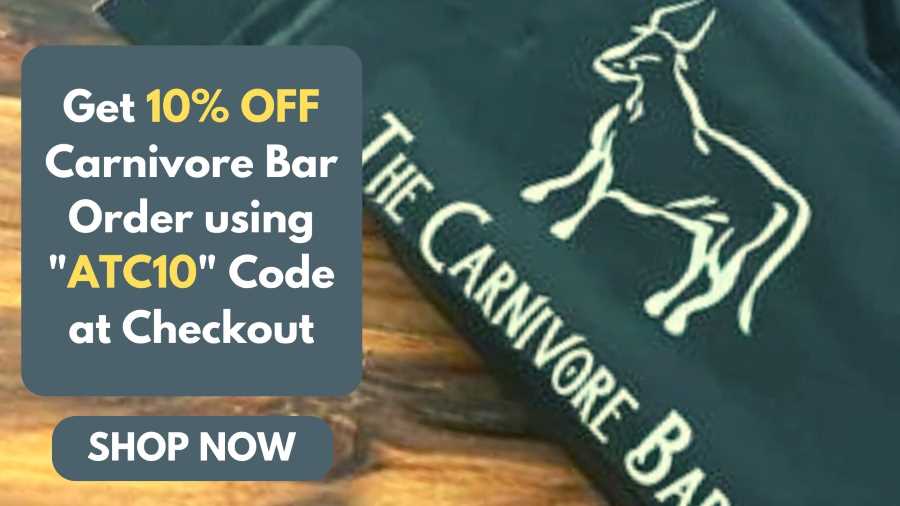
7. Omega 3 fatty acids
Similar to calcium, vitamin C, and magnesium, you can get enough omega-3 fatty acids from animal-sourced food for your body’s needs.
As with the above-mentioned nutrients, your omega-3 fatty acid requirement on the carnivore diet is expected to be lower. This is because omega 3 and omega 6 compete for the same biosynthetic enzymes, when you cut out a lot of pro-inflammatory omega 6 by eliminating vegetable oils, nuts and seeds from your diet, you don’t need as much omega 3.[52]
Animal-sourced food, especially grass-fed ruminant meat, fat and organ also have a much better omega 6 to omega 3 ratio (closer to the ideal 1:1 ratio compared to about 15:1 ratio in Western diets). [10, 11]
The Institute of Medicine established an adequate daily intake for alpha-linolenic acid (ALA) at 1.6 grams for men and 1.1 grams for women. The IOM did not establish intake recommendations for EPA and DHA but the European Food Safety Authority recommends between 250 and 500 milligrams per day for EPA and DHA.[53, 54]
Although the above intake recommendations are for the general population, you can easily meet them if you include omega-3-rich oily fish such as salmon, sardines, herring and mackerel a couple of times a week.
If you don’t eat fish, consuming grass-fed meat and organ meat such as beef and lamb brains (especially high in omega 3) can help boost your omega 3 intake.
Who may need supplements and the best supplements on the carnivore diet
As stated above, my view is you generally don’t need to supplement on the carnivore diet if you eat nose to tail, eat a variety of food, and eat a mixture of cooked and lightly cooked or raw food.
However, if you can’t eat this way for whatever reason, there may be a need for supplements.
If you fall in this category, try to get supplements that are whole food. Below are some suggestions on what to get.
- Desiccated organs. If you don’t eat organ meat for whatever reason, desiccated grass-fed organs could be a good supplement. If you like to try out organ supplements, please check out Dr. Kiltz’s range of quality grass-fed organ supplements and use “SOPHIALE” code at check out for 10% off
- Bonemeal. If you don’t eat dairy and whole fish and can’t be bothered with bone broth, you can get bonemeal power or capsules if you’re concerned about your calcium intake. As mentioned above, try to get grass-fed bonemeal and stay away from synthetic calcium supplements
- Cod liver oil is a great source of vitamin A, vitamin D and omega 3 fatty acids
- Vitamin C. Because vitamin C is destroyed by heat to some extent, if you like to eat well-cooked meat and don’t eat organ meat which has more vitamin C, you might want to supplement with vitamin C. The best source of vitamin C is fruits such as lemon, lime, oranges, berries, and pineapples, if you can tolerate them well. You don’t need to eat a lot, a serving a day should give you enough vitamin C. If you can’t tolerate plant food at all, then you have no choice but to get vitamin C tablets.

Conclusion
You will get all the nutrients that your body needs from animal-sourced food.
The ICMNI which has been using a high-fat animal-based diet without any supplements to treat thousands of patients with chronic health conditions finds that their patients do not suffer from nutrient deficiency.
Daily recommended allowances for various nutrients are helpful references but are probably not relevant to people on the carnivore diet.
In addition, the law of diminishing marginal return probably applies in diets as well.
Instead of focusing on minuscule issues and trying to perfect your diet, focus on something else that may deliver higher return, for example, finding ways to reduce stress, spending more time in nature or fine-tuning your schedule to fit with your innate circadian rhythm.
If you find this post helpful, please consider sharing this post and my site with your family, friends, and followers. That would be much appreciated. Please also check out my library of articles on the carnivore diet here which is updated regularly.
Disclaimer: The information in this post is for reference purposes only and not intended to constitute or replace professional medical advice. Please consult a qualified medical professional before making any changes to your diet or lifestyle.
Photo credit: Nataliya Vaitkevich on Pexels

